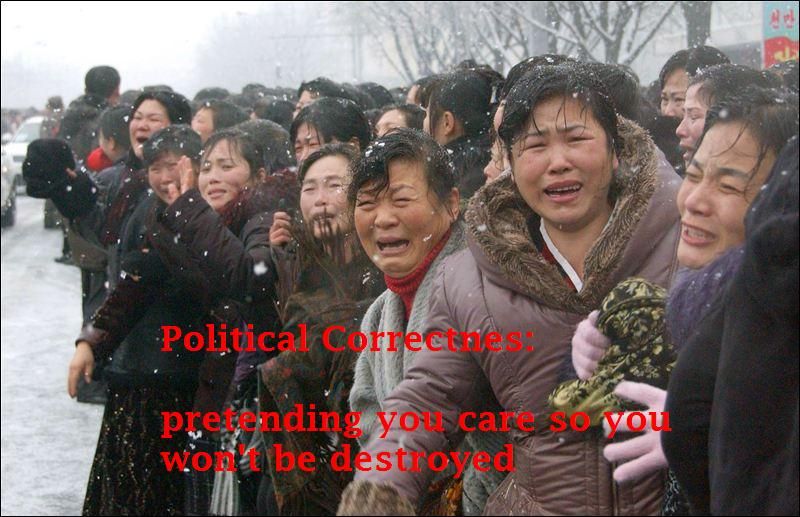What comes to mind is something that doesn't exist, at least not in the way people use the word. It brings to mind people who, for some reason or another, are resistant to making minor, painless adjustments for the sake of tolerance and inclusiveness. It makes me think of people who are unsophisticated and resistant to change, and really only care about themselves and their own priorities.
I think this is generally accurate, but incomplete. There is another side.
For some it's simply an issue of free speech. I like free speech, if for no other reason than it makes it really clear who the crazy people are...

For some it's the nitpicking and finding fault in statements which are clearly not intended to offend. People can find offense anywhere they wish.
Now I don't go out of my way to offend people, but I also don't wring my hands and worry about every little comment that could possibly offend someone. There are 7 billion people on the planet. Everything is going to offend someone, somewhere...
I choose not to let other people have so much power over me that they can change my emotional state because they use a word I don't like, or a phrase I disapprove of. Of course I don't always succeed, but that's my philosophy: I don't need to change your speech, I need to get comfortable with ideas that are different than mine.
Also, I need to pick and choose my battles.
 ----->
----->  ----->
----->  ----->
-----> 
 ----->
----->  ----->
----->  ----->
-----> 



